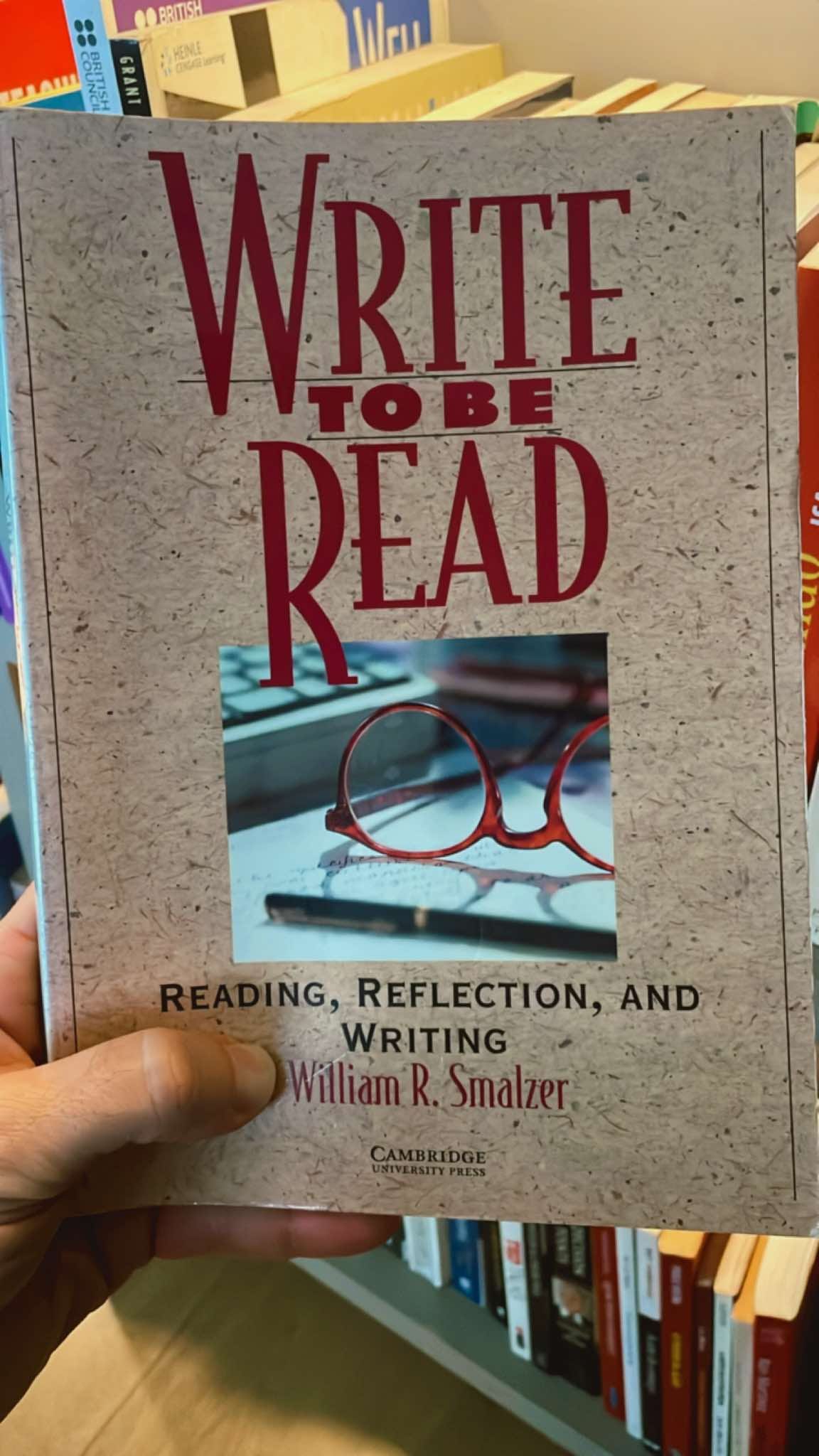Why Writing in Exams Feels So Hard—Even If Your English Is Great
How content knowledge shapes success in advanced writing exams
How much does background knowledge really matter when writing for high-level exams like the Cambridge C1 Advanced and C2 Proficiency? A lot more than we often realize. And today, I want to show you why I believe it makes all the difference.
Old Coursebooks, New Lessons
As someone who collects old coursebooks, especially those geared toward C2 Proficiency, I recently added Write to be Read by William R. Smalzer (1996) to my collection. A few things immediately stood out:
The units are notably long compared to today’s coursebooks.
Students prepare extensively before writing—not just brainstorming or structuring.
Building subject matter knowledge is a key first step, not an afterthought.
This preparation wasn't merely about language or the use of linking words and cohesive devices. It was about helping students read, discuss, and internalize the topic before they even wrote a word. It got me thinking: maybe we've lost something important in modern exam prep.
What I Often See in C1 and C2 Exam Prep Books
In most C1 Advanced and C2 Proficiency coursebooks, the spotlight is usually on:
Language accuracy
Grammatical range
Lexical choice
Coherence and cohesion
A bit of genre analysis
All critical, of course!
But here's a pattern I've noticed:
Students often struggle to develop and deepen their ideas not just because of language gaps, but because they don't know enough about the topic.
And when you don't have much to say, no writing technique will save you.
A Real-World Example
Imagine two essay prompts:
The challenges of learning a second language
The role of museums in society
An English teacher could probably write a strong essay on the first—it's lived experience.
The second? Well, even advanced users of English might freeze up. The gap isn't grammar—it's background knowledge.
Once, a teacher I worked with—someone with an incredibly high level of English—told me she got completely stuck on a writing task. The topic? The impact of visual clichés in advertising. It wasn’t the language that held her back; she simply didn’t know what to say.
A Small Habit That Makes a Big Difference
Try this simple habit for the next two days: read one short article each day on an unfamiliar topic. Museums, renewable energy, urban planning—anything outside your usual bubble.
While you read, ask yourself:
What are the 2–3 key points here?
Could I explain this to a friend in simple English?
This practice builds what is often referred to as "content range"—and it can seriously level up your writing, fast.
Why It Matters
Refining your writing techniques and mastering language skills are non-negotiable. But pairing them with a broader knowledge base turns you into a flexible, confident writer.
Mind you, it’s not about knowing everything. It's about being curious enough to know a little about a lot.
Invitation (Shameless but Useful)
If you’d like structured guidance to prepare for the exam, join my C2 Proficiency Prep Course next semester. Here’s what I offer:
Holistic Skill Development: Yes, we’re aiming for C2 Proficiency—but every skill you sharpen will serve you far beyond exam day.
Continuous Assessment: Regular mock exams track your growth and help fine-tune your strategies.
Personalized Feedback: Get clear, individualized insights on your writing and speaking so you know exactly what to tweak.
Flexible Learning: If you miss a class, that’s not a problem. Each class is recorded and available for one week.
Expert Tutoring: I’ve helped hundreds of candidates not just pass, but thrive, in Cambridge exams.
Want in?
Join the waiting list now to receive an exclusive offer dropping on June 3rd.
Keep learning, keep growing—and thanks for letting me be part of your journey!






The broader the range of topics one can get to know a little about, the better. A student of mine took IELTS these days. Writing Task 2 was something about the extinction of the dinosaurs! 😳🦕
lol 😂